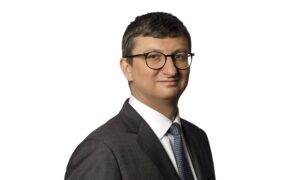Narrow your search
Key facts:
The Democratic Republic of Congo (DRC) filed criminal complaints against European Apple subsidiaries in France and Belgium, alleging that Apple uses “conflict materials” in its supply chains.
In parallel complaints filed to the Paris prosecutor’s office and to a Belgian investigating magistrate’s office, DRC accused local subsidiaries Apple France, Apple Retail France, and Apple Retail Belgium, as well as the Apple group as a whole, of a range of offences. These include covering up war crimes and the laundering of tainted minerals, handling stolen goods, and carrying out deceptive commercial practices to assure consumers supply chains are clean.
Conflict materials refer to raw materials extracted from high-conflict or politically unstable areas. Some mines in these areas are run by armed groups, perpetuating human rights violations including forced labour, mass displacement, and millions of deaths.
The DRC are a large-scale supplier of 3T minerals (tin, tantalum and tungsten) which are used in production of computers and mobile phones. The DRC commissioned a report in late 2024 titled “Blood Minerals”, investigating the laundering of 3T minerals mined in the DRC by Rwanda and private entities.
In March 2024, Apple filed a Specialised Disclosure Report to the U.S. Securities and Exchange Commission, stating that “100 percent of the identified smelters and refiners in our supply chain for all applicable Apple products manufactured during 2023 participated in an independent third-party conflict minerals audit” for tin, tungsten, tantalum, and gold, and that Apple was committed to “responsible sourcing” and that their products are made with conflict-free materials.
It is alleged in the complaints that Apple’s products use minerals sourced in the DRC which have been laundered through international supply chains, making Apple complicit in human rights crimes taking place in the DRC. Apple has denied the allegations.
In February 2025, French prosecutor closed the case. The French prosecutor concluded that the DRC’s allegations relating to money laundering and deceptive business practices were “not sufficiently well-founded”. However, despite closing the DRC’s case in respect of these claims, the prosecutor invited the DRC to pursue the allegations of war crimes with an office with the appropriate jurisdiction. The status of the proceedings in Belgium is unknown.
Reuters article











